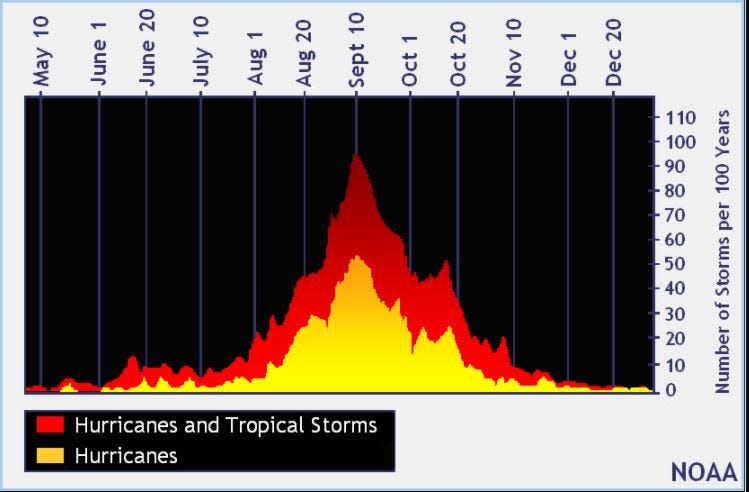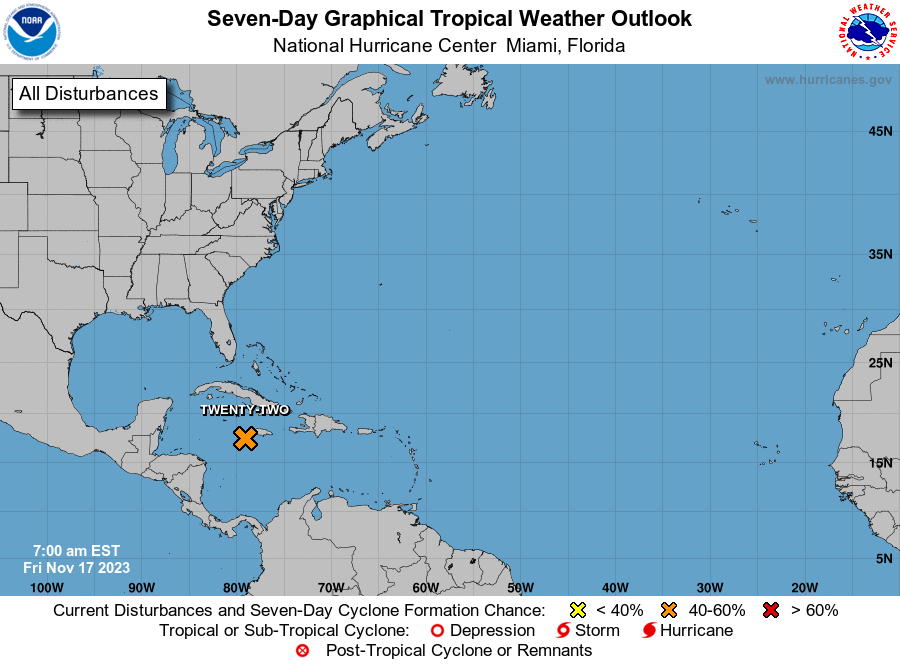NHC: Tropical cyclones not expected, but Saharan dust could impact Florida
For the second weekend in a row, the National Hurricane Center is not expecting any tropical cyclone activity in the North Atlantic, Caribbean or Gulf of Mexico.
While forecasters at the NHC are tracking four tropical waves, including one that will likely bring rain to the Virgin Islands, Puerto Rico and Hispaniola over the weekend, none of them are predicted to form into organized storms.
In fact, no tropical cyclone formation is expected over the next seven days, according to the NHC's Saturday morning advisory.
It does not mean the skies will be clear, however.
Dust from the Sahara Desert in Africa could impact Florida and the entire Gulf Coast throughout the next week, according to forecast models. In addition to sustaining hot, dry conditions, the Saharan dust layer (also called the Saharan Air Layer) could affect air quality and trigger symptoms in people who have respiratory conditions or allergies.
Here's the latest update from the NHC as of 8 a.m. July 8:
What's out there and where are they?
Tropical wave 1: A tropical wave in the eastern Atlantic is located northwest of Cabo Verde. It's moving west at around 9 mph. Exact location: extending along 26W/27W from 19N southward.
Tropical wave 2: A tropical wave in the central Atlantic is located east of Puerto Rico. It's moving west at 9 to 12 mph. Exact location: along 49W from 19N to 9N.
Tropical wave 3: A tropical wave in the eastern Caribbean is located north of the Lesser Antilles. It's moving west at 9 to 12 mph. Exact location: near 63W/64W from 20N southward.
Tropical wave 4: A tropical wave in the Caribbean Sea is located between Cuba and Mexico's Yucatan Peninsula. It's moving west at around 6 mph. Exact location: near 87W from 20N southward.
Who is likely to be impacted?
There is a likelihood of rain this weekend across Puerto Rico and the Virgin Islands from the tropical wave in the eastern Caribbean. It's too early at this time to determine if there will be any impact to the U.S. mainland from the tropical waves.
Forecasters urge all residents to continue monitoring the tropics and to always be prepared.
Weather watches and warnings issued in Florida
If you can't see any local weather warnings here, you'll need to open this story in a web browser.
When is the Atlantic hurricane season?
The Atlantic hurricane season runs from June 1 through Nov. 30.
When is the peak of hurricane season?

The peak of the season is Sept. 10, with the most activity happening between mid-August and mid-October, according to the Hurricane Center.
Tropical forecast over the next seven days
Excessive rainfall forecast
What's out there?
Systems currently being monitored by the National Hurricane Center.

What's next?
We will continue to update our tropical weather coverage daily. Download your local site's app to ensure you're always connected to the news. And look at our special subscription offers here.
This article originally appeared on Naples Daily News: National Hurricane Center tracking tropical waves, Saharan dust

